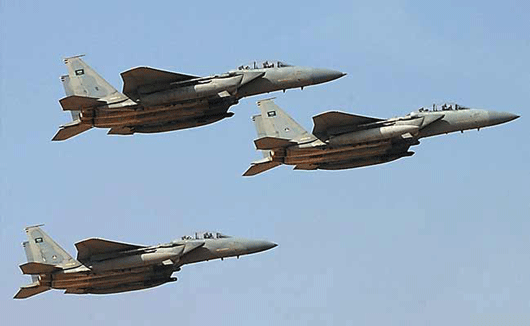
Local Editor
As tribal mediation brings calm to the Saudi-Yemen border following a nearly year-long aggression led by Riyadh against Yemeni revolutionaries, Washington has welcomed talk of an end to the coalition’s major combat.
"We have expressed our concerns about the loss of innocent life in Yemen. The violence there that is plaguing that country has caught too many innocent civilians in the crossfire," White House spokesman Josh Earnest said on Thursday.
He said "we would welcome and do welcome" a statement from the coalition spokesman, Brigadier General Ahmed al-Assiri, who told AFP in an exclusive interview that the coalition is "in the end of the major combat phase".
The coalition launched its military campaign on March 26 last year to support fugitive former President Abedrabbo Mansour Hadi after Houthi revolutionaries seized large parts of Yemen including the capital Sana’a.
Supported by coalition air strikes and some ground troops, Hadi loyalists still failed to dislodge the Houthi forces from Sana’a or to completely remove them from the country’s third city Taiz where intense battles continue.
Mustafa Alani, of the independent Gulf Research Centre, said that although fighting is not necessarily going to finish by March 26 "the operation is basically reaching its end."
He said the coalition is keen "not to go beyond that psychological date."
Rights groups have raised concerns about civilian casualties caused by the coalition.
There have been repeated criticisms that coalition air strikes have not done enough to avoid non-military targets.
In the latest incident, the United Nations childrens’ agency UNICEF on Thursday said the death toll from air strikes on a market rose to 119, including 22 children.
The figure is nearly three times that previously reported for Tuesday’s attack on the market in northern Yemen’s Hajja province.
It is one of the deadliest incidents since the coalition attacked.
Medics and tribal sources had earlier reported 41 people killed in the strikes, and a health official in Hajja said the dead were civilians.
UN Secretary General Ban Ki-moon demanded an investigation into the bombing.
"Absent the intel and precision guided munitions we provide, the civilian casualties would be worse," a US defence official said.
The World Health Organization says fighting in Yemen has killed more than 6,200 people over the past year and the United Nations has warned of an unfolding humanitarian catastrophe.
About half the dead have been civilians.
Sources: News Agencies, Edited by Website Team